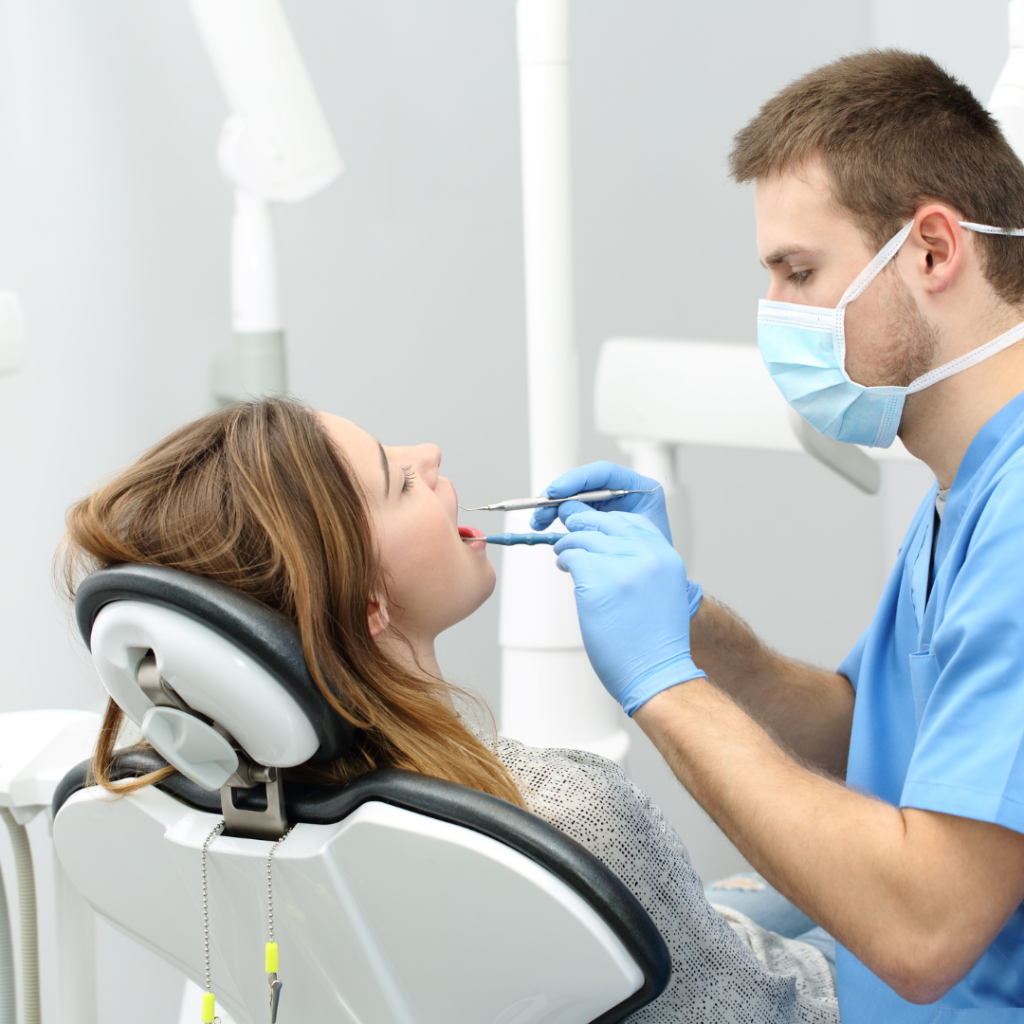Prevention is everything in dentistry. Brushing and flossing will keep your teeth clean and lessen the risks associated with oral infections and diseases. Even if your mouth is clean and fresh, chances are you might not be able to spot out the cavities between the teeth. Regular check-ups can therefore be more cost effective than having to pay for expensive dental work such as tooth replacements, fillings, crowns and treatment of advanced gum disease.
What happens during a dental check-up?
In most cases, your visit to your dentist in Camberwell will be for a routine check-up. We will start by asking you a few general health questions and enquire whether you have experienced any dental problems or pain. Your dentist should then carry out a full dental examination of the soft tissue lining of your mouth, teeth and gums.
If there are any signs of dental problems, your dentist in Camberwell will offer advice about changes you could make to your lifestyle (such as stopping smoking or changing your diet), as well as oral care tips.
These habits could lead to problems in the future, they will explain what you might be at risk of, as well as the associated treatments and costs that might be needed.
You may have a build up of calcified plaque, otherwise known as tartar build up,if so, you will need a scale and polish. This will remove the plaque and tartar below the gum line.
If your dentist in Camberwell finds further problems, they will recommend the next steps you will need to take. This could be the need for fillings to damaged or decayed teeth, treatment for gum disease or further tests to aid diagnosis. This usually comes in the form of a written treatment plan, which you sign before commencing any treatment. If this is not offered, please feel free to ask for one.
When You Should See A Dentist
If you notice any of the following signs or symptoms in between your regular dental appointments, you should book a dental appointment as soon as possible:
- Unusual tooth sensitivity
- Red, tender, or swollen gums
- Gums that are pulling away from your teeth
- Bleeding gums when you brush or floss
- Permanent loss of teeth
- Changes in tooth alignment
- Persistent bad breath
- Bad taste in your mouth
- Difficulty swallowing
- Mouth ulcers or sores that simply don’t heal
It’s important to remember that if you experience any of these signs or symptoms, early detection is the key to treatment and can help ensure a lifetime of good oral health.
At Riversdale Dental, we know how quickly oral infections can spread and how fast your oral hygiene can be compromised when you don’t look after it properly. That’s why it’s so important you contact our team as soon as possible to book your regular six-mouth check-ups. Let us help you keep your dental hygiene in check!


